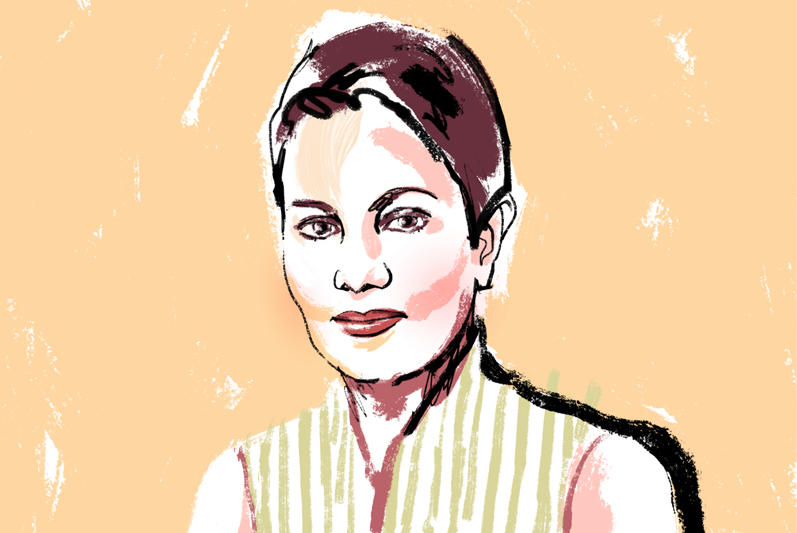Leukemia specialist Azra Raza, the Chan Soon-Shiong Professor of Medicine at the Columbia University Irving Medical Center and the director of its Myelodysplastic Syndrome Center, argues in her new book, The First Cell, that the medical field needs to focus more on early detection.
In The First Cell, you call for a fundamental shift in the way we approach cancer research and treatment. Can you explain this?
For decades, our strategy has been to try to kill every last cancer cell, and in pursuit of that goal we have witnessed cycle after cycle of excitement, anticipation, a new magic bullet just around the corner, followed by crushing disappointment. I’m proposing that instead of fighting the disease at its most malignant, malevolent end stage, we catch it early. I’m not saying we will literally find the very first cell, but the idea is to identify problem cells at the earliest point possible. By detecting the footprints of the disease — its biomarkers — we can eradicate these cells before they have a chance to organize into an incurable disease. To be clear, I’m not calling for all current research to stop; patients with active disease need to be treated. But the status quo is unsustainable and financially ruinous for individuals, institutions, and the nation’s health-care system. Also, we must look at all this through the prism of patient anguish.
Your book accomplishes that last goal beautifully, thanks to the powerful stories you share about your patients, including your late husband. His ordeal was particularly eye-opening.
It was. As I say in the book, “I’d been treating cancer for two decades, yet until I shared a bed with a cancer patient, I had no idea how unbearably painful a disease it could be.”
You specialize in acute myeloid leukemia (AML), one of the deadliest blood cancers. How do you make peace with the fact that so many of your patients die?
Basically, as the philosopher Antonio Gramsci says, we must have pessimism of the intellect matched by optimism of the will. That is, we understand a situation’s gravity in all its profundity, yet we address it with positivity. My patients have taught me that there is no definitive despair or hope. When a blood count is good, we high-five and dance in the corridors. Two weeks later, the counts fall and we’re in despair. The despair heightens the beauty of the happier moments. I am deeply moved by the nobility of my patients’ endurance — the way they and their families rise to the challenges. I am so fortunate to see the best side of humanity on a daily basis.
Since 1984, you have been building a one-of-a-kind repository of more than sixty thousand blood and bone-marrow cells donated by your patients with myelodysplastic syndrome (MDS), a blood disorder that leads to acute leukemia in about a third of cases. How can this repository aid in early cancer detection?
I believe the tissues languishing in its freezers may hold the answer to finding the first cell. Examining these samples, we can identify the cells that are harbingers of cancer. The key question is why some people get MDS. If we sequence the DNA in the patients’ normal cells, we can determine the genetic quirk, if any, that made them susceptible to MDS and subsequently to AML. (This is similar to the BRCA mutations that put some women at high risk for breast or ovarian cancer.) Then we can go to the DNA banks and compare my patients’ DNA with that of healthy individuals. Eventually, a barcode of inherited mutations will be used to pinpoint people with a genetic susceptibility to certain cancers and allow targeted screenings. The future of early cancer detection is a constant screening of the human body as if it were a machine.
How will we fund these new technologies?
I generally don’t say a lot in favor of capitalism, but it is very effective at providing incentives. We spent more than a billion dollars to sequence the first human genome; within fifteen years, the cost fell to a few hundred bucks, thanks to capitalism and competition. Friends worry that my book will provoke a backlash from pharmaceutical companies making huge profits from cancer drugs. But right now those companies have perhaps ten million cancer patients and survivors to treat. If they pursue the monitoring of healthy people for the first signs of disease, they’ll have three hundred million subjects.
This article appears in the Winter 2019-20 print edition of Columbia Magazine with the title "Stopping Cancer in Its Tracks."



